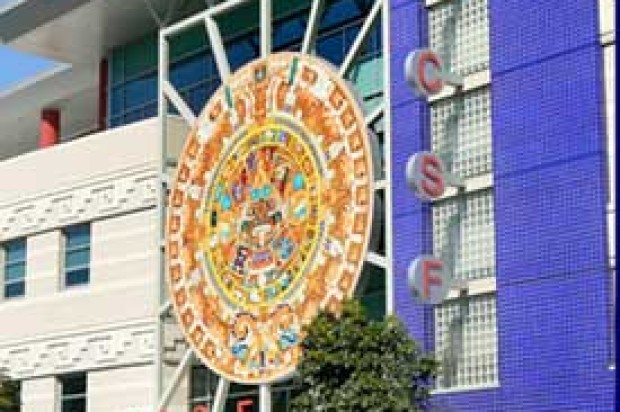
In a lawsuit that could go to trial next month, attorneys for San Francisco and a regional accrediting commission argued at a hearing today over whether City College of San Francisco has wrongly faced the loss of its accreditation.
San Francisco Superior Court Judge Curtis Karnow heard cross-motions for summary judgment from Deputy City Attorney Thomas Lakritz, as well as Andrew Sclar, an attorney for the Novato-based Accrediting Commission for Community and Junior Colleges.
Each attorney spoke for about one hour this morning, presenting statements and answering questions from the judge about the lawsuit and the accreditation process. If Karnow denies both motions, a trial date is set for Oct. 27.
The lawsuit, filed in August 2013 by San Francisco City Attorney Dennis Herrera, claims the ACCJC treated City College unfairly during the accreditation review process.
Herrera’s office also alleges that the ACCJC’s intention to revoke the accreditation of San Francisco City College was motivated by political bias, failed to respect the institution’s right to due process, was tainted by the commission’s conflicts of interest and was the product of failure to follow procedures required by law.
City College was slated to lose its accreditation effective July 31 after the accrediting commission evaluated the school and cited problems with its administration, finances, governance structure and other issues.
Karnow issued an injunction in January preventing the revocation of City College’s accreditation from taking effect until a trial was held.
Sclar, the ACCJC’s attorney, said the city attorney’s office is arguing that there was not enough notice to correct deficiencies and that there were improper procedures to reach the commission’s determination.
He said the commission gave City College “multiple notice” and that the school “had the opportunity to be heard.”
Sclar said that when students attend an accredited college, they have the right to know that their institution meets a certain standard and that it is the commission’s job to judge that.
The city attorney’s office said it is challenging the procedures that led up to the decision to disaccredit the college.
Following today’s hearing, Rodger Scott, a City College of San Francisco instructor since 1972 and a member of the board of the American Federation of Teachers Local 2121 union, said the “authoritarian” power of the ACCJC has to be checked.
Scott said the sanction against the school and the decision to revoke its accreditation was “unjustified, harsh, (and) unwarranted.”
Scott said if the ACCJC can do this amount of harm to City College, which he said is a strong, well-attended college situated in a progressive city with an enlivened population, imagine “how vulnerable other colleges are that don’t have our resources.”
AFT Local 2121 attorney Robert Bezemek said the ACCJC is seeking to push students from public to private colleges.
Bezemek said the commission today “tried to claim they are not involved in commercial markets, that they aren’t involved in commerce, well that’s totally absurd.”
Bezemek said how the ACCJC judges City College in comparison to a private school such as DeVry University makes a big difference to students.
“If ACCJC is unfairly evaluating a non-profit public college that will educate students for $5,000 and closes them, forcing students to go to a college that is going to charge them $40,000 or $60,000, that has a direct effect on commercial markets and on consumers,” Bezemek said.
He said ACCJC’s accreditation process has been illegal and that he is confident the case will go to trial.
Hannah Albarazi, Bay City News









